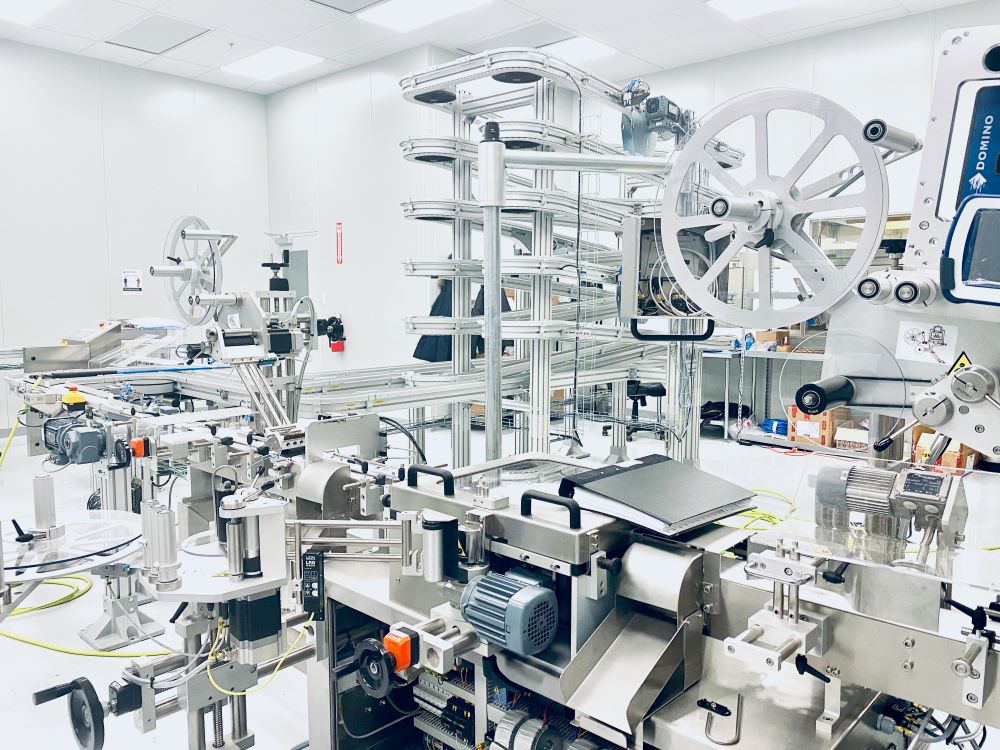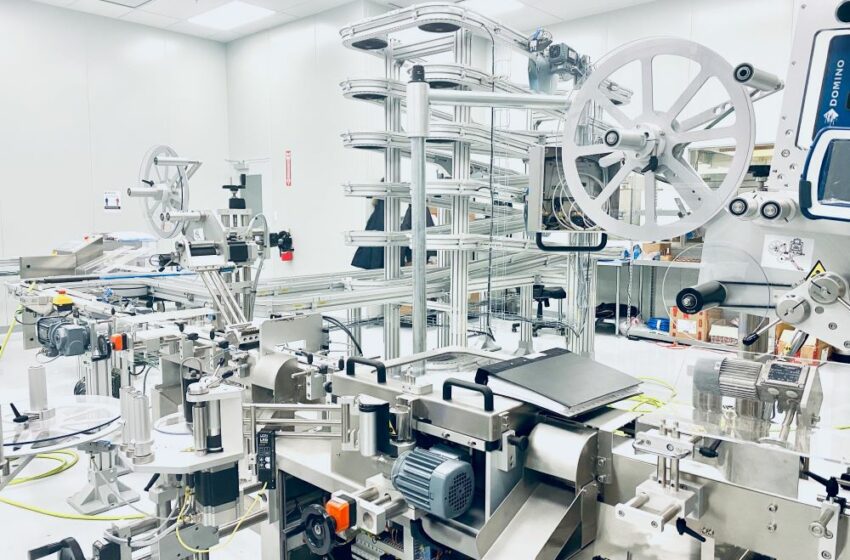
TJP Labs’ novel nicotine particulate significantly speeds up nicotine delivery.
By Stefanie Rossel

More than two decades after the debut of the first commercial e-cigarettes, delivering consumers the right degree of nicotine—the “perfect kick”—remains a challenge for manufacturers of reduced-risk products.
To solve this issue, Canada-based TJP Labs has developed a novel nicotine particulate, for which it filed for patent protection in April 2024. The new technology dramatically increases the speed of nicotine release compared to polacrilex, a resin complex commonly used in nicotine-replacement therapy (NRT) products, and other forms of nicotine that presently exist in recreational products, according to David Richmond-Peck, chief relationship officer at TJP Labs.
“Our technology allows for control and extreme flexibility in terms of the finished product’s nicotine release profile,” he says. “It is quite versatile and can be used with different forms of nicotine—whether it’s tobacco-derived, synthetic, a prodrug or an analog. This inclusivity helps with its applicability across a wide range of products. Quite notably, the development can aid in addressing concerns with tobacco-specific nitrosamines, which are minimal or absent, especially in synthetic forms. Further, our innovative development has the potential to provide an enhanced consumer experience by providing a faster and more efficient nicotine release, aiming to provide a more satisfying and potentially safer alternative.”
According to TJP Labs, the nicotine particulate offers versatile particulate size customization, ranging from ultra-fine to several hundred microns, for precise product design as well as precision-targeted binding. “When utilized in combination with other features, our technology allows us specific customization capability to tailor products for faster or more controlled release, addressing various consumer needs and improving efficacy. Such control can lead to cost-effective production and better overall product performance, enhancing the success rates of smoking cessation efforts or providing more enjoyable recreational options.”
The product can also be used with a broad spectrum of core materials, including porous or nonporous, biodegradable and various organic compounds, notes Richmond-Peck. This enhances the company’s ability to innovate and tailor nicotine-delivery products. “This versatility means products can be designed to mimic the nicotine uptake of combustible tobacco more closely, potentially improving their effectiveness as smoking cessation aids or recreational alternatives,” he says. “The flexibility in core material choice allows for innovations that can help to meet diverse consumer preferences and regulatory requirements.”
The particulate can be utilized in both NRT products and recreational nicotine products. “This includes applications in gums, patches and lozenges, especially in modern oral nicotine pouches, where controlled nicotine release is crucial,” says Richmond-Peck. “Our technology is designed to enhance both the efficacy and consumer satisfaction of these products, making them viable alternatives to traditional smoking products.”
Pouches with Potential
Other advantages include efficient raw material use, allowing for nicotine loading several orders of magnitude over polacrilex, and optimization for organic and inorganic forms, including biodegradable resins, according to TJP Labs. The technology is designed for seamless integration, enabling easy incorporation into nicotine pouch formats and related products.
A wholly owned subsidiary of Kik Ass Products, TJP Labs is a full-service, global contract manufacturer of next-generation products, specializing in modern oral buccal delivery pouch manufacturing. It is also a newcomer to the industry. In 2021, it began developing innovative pouched products for energy and nutraceutical uses. In September that year, it opened Canada’s first modern oral nicotine contract manufacturing facility for oral nicotine pouches in Pickering, Ontario. Spread over a rapidly expanding campus, the plant features high-speed pouch filling, in-line photography, check weighers and integrated finished product metal detectors to ensure high standards of consumer safety and product efficacy.
“We are currently expanding our production capabilities, aiming to achieve an impressive output of over 100 million retail units annually by mid-2025,” says Richmond-Peck. “As market dynamics evolve, we plan to double this capacity to 200 million retail units by 2026. Our operations extend beyond manufacturing to include robust research and development efforts, all driven by our commitment to advancing harm reduction.”
In addition to contract manufacturing for international brands, TJP Labs has also launched its own brand, L!X nicotine pouches, which was first marketed by its subsidiary L!X Innovations. In early 2022, TJP submitted a premarket tobacco product application to the U.S. Food and Drug Administration for L!X nicotine pouches.
In June 2023, Imperial Brands acquired 14 L!X pouch variants for an initial consideration of £65 million ($81.57 million) and an additional deferred sum based on sales volumes over five years. The deal is meant to enable Imperial’s U.S. operation, ITG Brands, to expand its next-generation product offerings in the United States. Following further consumer testing, ITG Brands launched the range in the U.S. under the brand name Zone in the first quarter of 2024, with TJP Labs continuing to manufacture the pouches under contract.
“Our primary focus in the nicotine industry has consistently been on harm reduction,” says Richmond-Peck. “Although we started as a manufacturing company, we have broadened our capabilities to include research and development. In 2023, we facilitated Imperial Brands’ entry into the U.S. market by selling them our range of nicotine pouch products and serving as their contract manufacturer. We retained the global rights to our L!X pouches outside the U.S. and are actively seeking market opportunities and partnerships in additional territories. Currently, our development efforts are concentrated on providing consumers with innovative pouched products that incorporate energy and other nutraceutical ingredients.”
To TJP Labs, modern oral pouches are an innovative delivery system with the potential to deliver various active ingredients, with applications ranging from pharmaceutical to recreational use. “In 2021, we began to develop a separate category of energy products for adult consumers. These products are now market-ready and slated to launch later this year,” says Richmond-Peck.
For its new nicotine particulate, TJP Labs anticipates to receive initial evaluation data by the end of the second quarter this year. Next steps will involve exploring partnerships or licensing opportunities to leverage the technology effectively for harm reduction, according to Richmond-Peck. “Depending on the product application, regulatory approvals will be necessary, such as certifications from medical agencies for NRT products or FDA approval for recreational nicotine products in the U.S. Our objective will be to sell or license the intellectual property to the party that can most effectively contribute to global harm reduction.”













